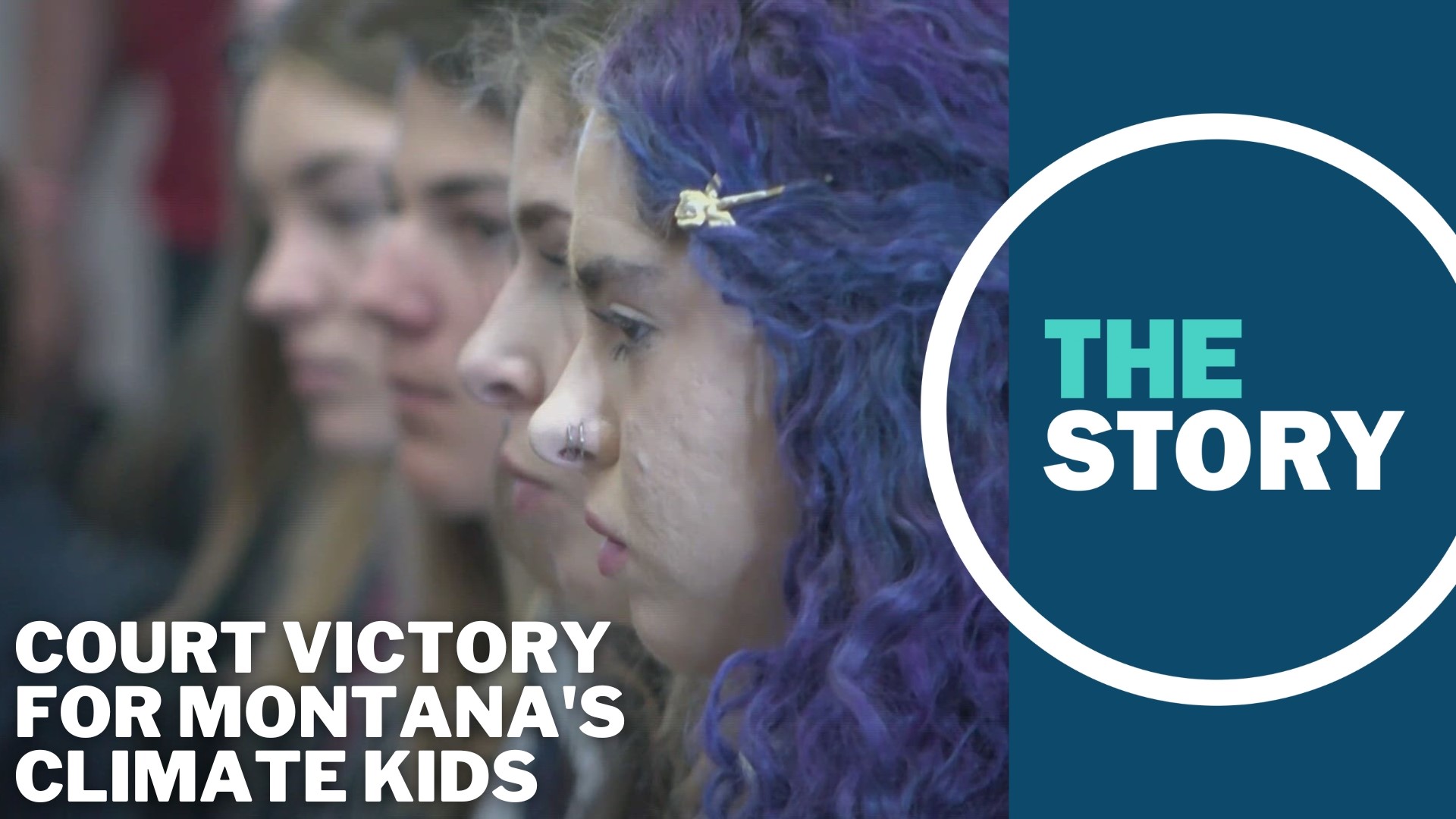PORTLAND, Ore. —
In what experts are calling a “landmark” decision, a Montana judge ruled in favor of 16 young plaintiffs who had sued their state over climate change.
The 103-page decision, issued by 1st District Court Judge Kathy Seely on Monday, found that “Montana’s (greenhouse gas) emissions and climate change have been proven to be a substantial factor in causing climate change impacts to Montana’s environment and harm and injury to the Youth Plaintiffs.”
The case, Held v. Montana, cited a clause in the state constitution that establishes “a clean and healthful environment” as an inalienable right. Lawyers for the young people argued that a provision of the Montana Environmental Policy Act, which forbid the state from considering climate change when issuing permits for fossil fuel projects, violated the state’s constitution.
Mat dos Santos, general counsel and managing attorney for Our Children’s Trust, which represented the young people, said the ruling was a welcome affirmation of the experiences of his clients.
“It's a landmark ruling that finds that these youth plaintiffs have a constitutional right to a clean and healthful environment, and that right underpins all of their other foundational rights,” dos Santos said. “That's really important, not just for Montana, but really for the rest of the world as other courts in states and jurisdictions around the world look at this really critical question of, 'Can youth hold their governments accountable for climate change?'”
Montana Attorney General Austin Knudsen’s office blasted the decision.
“This ruling is absurd, but not surprising from a judge who let the plaintiffs’ attorneys put on a weeklong taxpayer-funded publicity stunt that was supposed to be a trial,” Emily Flower, a spokeswoman for Knudsen, said in a statement. “The State will appeal.”
Over the course of the 7-day trial, the court heard testimony from dozens of witnesses – the plaintiffs themselves told the court how climate change had disrupted their lives, causing mental and physical anguish, while climate experts presented evidence of the links between burning fossil fuels and extreme weather events like wildfires, drought and heat waves.
RELATED: Flash drought, invasive grasses, winds, hurricane and climate change fuel Maui's devastating fires
Lisa Benjamin, an environmental law professor at Lewis and Clark College in Portland, said the plaintiffs presented a compelling case.
“They had psychiatrists and pediatricians testify about the impacts of climate change physically on young people, it's worse because their bodies are still developing and also the mental health impacts on children were significant in terms of not only climate anxiety, but depression and fear,” Benjamin said.
It caught Benjamin by surprise that the defense only called three witnesses, who did little to rebut the testimony presented by the plaintiffs, but she said the state’s lawyers were facing an uphill battle.
“It really is very difficult to contest the science now on climate change. We can basically see it every day around us, including in Oregon and different states,” Benjamin said, noting recent climate-influenced disasters like the wildfires in Hawaii and the recent triple-digit heat spell in Portland, which is suspected to have caused at least four deaths.
“It's not just the climate science that went uncontested, it was actually the impacts on people physically and mentally that were uncontested,” Benjamin said.
RELATED: Record heat waves illuminate plight of poorest Americans who suffer without air conditioning
Flower didn’t address the state’s defense, but did take issue with Our Children’s Trust, calling the organization a “special interest group that is exploiting well-intentioned Montana kids — including a 4-year-old and an 8-year-old — to achieve its goal of shutting down responsible energy development in our state.”
Dos Santos said it was the passion of the plaintiffs that were leading the lawyers, not the other way around.
“I think all it takes is to either read something one of our plaintiffs have written or to listen to the testimony that they gave on the stand to understand that these are young people who care deeply about their state and care deeply about their constitutional right to a clean and healthful environment,” dos Santos said.
Still, Benjamin said it’s unclear if the ruling will stand as an appeal is likely headed to Montana’s Supreme Court.
“This decision might not actually be the final decision, but it's really helpful that at the first instance we have really strong connections to the facts of climate change, to climate science, to the harms that are being experienced by these young people in Montana as a direct result of climate change,” Benjamin said, adding that the judge’s ruling also made special note of just how much Montana contributes to climate change.
“Their emissions are equivalent to certain countries like Argentina, Pakistan and the Netherlands, so the way that the opinion has laid out the climate science is really irrefutable,” Benjamin said.
And dos Santos said the decision in Montana could provide some momentum for similar cases.
“This kind of unequivocal statement from a judge and a ruling is groundbreaking and I am sure we'll see it now being repeated in courts around the country and around the globe,” dos Santos said.
One of those cases is Juliana v. U.S. In 2015, Kelsey Juliana and 20 other young Oregonians filed suit against the federal government over climate change and what they alleged were violations of their constitutional rights.
The case has gone through many twists and turns over the intervening eight years, at certain points appearing to be all but dead. But a recent ruling by a federal judge in Oregon allowed for the plaintiffs to amend their complaint and dos Santos said they are currently preparing for trial.
“We think that we're likely to be in trial towards the end of this year or early next year,” dos Santos said. “These young people are just trying to get their day in court and have their voices heard about how the government is actively harming them.”

